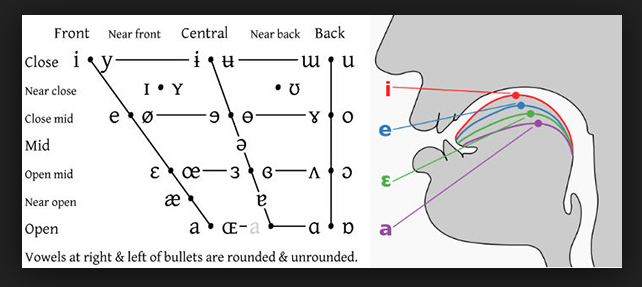|
Accented speech always contains vowel errors. Vowels can be tricky to correct, because they do not have obvious placement targets for your mouth. We also have to overcome the mapping in our brains. We actually hear a different vowel than is being spoken when we listen to a foreign language. This is because our brain likes to sort the vowel sounds into our own familiar sound system. When learning American English, it is helpful to create word sets and re-organize how we hear vowels. A good place to start is to listen to the vowels by themselves. You can find recordings of words and isolated vowel sounds online. Check out this handy chart with recorded vowel sounds created at the University of Kansas.
0 Comments
 Why is American English so different from British English? Besides the use different vocabulary, there are specific sound differences in the accent. While there are many different accents in both countries, if we compare what is considered “standard American” with British RP (Received Pronunciation, or the British English you hear on the BBC), one of the major differences is in the pronunciation of the consonant “r.” British English leaves out the “r” sound in the middle and ends of words (“bird” sounds more like “buhd”) while the American English word includes the “r”. For a little more about the difference and when it may have started, read Matt Soniak’s article on MentalFloss.  Every accent has its own distinct character, but often one of the elements that can make you hard to understand has to do with the ends of words. In American English, we usually pronounce sounds at end of a word, unless the word ends with a silent “e” (such as in the words name, goose, slice) or the word has been adopted into English from a foreign language (such as the words bourgeois, gourmet). A common error found in many foreign accents is de-voicing final consonants (for example, saying “bet” instead of “bed”), saying the final sound of the word too softly or leaving it off entirely. This error can be compounded by the speaker’s lack of confidence and desire not to call attention to his or her accent. Practice reading aloud, and slow down enough to say all of the sounds you see in the written words. You will feel your mouth moving more than you are used to. Next, try having a short conversation using this same technique. You may find that people can understand what you are saying better because you are putting the end sounds on your words. |
Subscribe to this blog:
Categories
All
Archives
March 2021
Copyright 2020
Christine Dunbar Have Questions?
Get A Free Consultation We offer a free 30-minute phone consultation. Schedule yours now. |


 RSS Feed
RSS Feed



